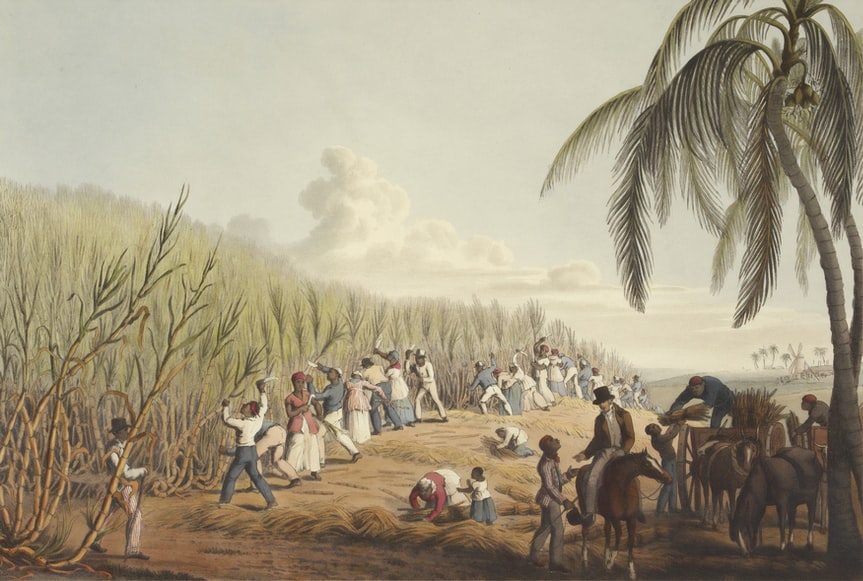This is a free essay sample available for all students. If you are looking for custom essays for sale on the topic “Positive and Negative Effects of Imperialism”, browse our private essay samples.
Introduction
Imperialism is defined as the strategy in which a country extends its power to other countries or regions through one of two means: colonization or military use.
You have probably seen one or two examples of this in your history textbooks. What are the positive and negative effects of imperialism? How have colonized countries been affected by this experience?
In this sample comparative essay, the author looks at three positive impacts and negative impacts of imperialism.
For your own custom essay, reach us through our website. We would love to take you through our array of essay writing services.
Positive Effects of Imperialism
Being under another nation’s sovereignty or rule may initially sound dismal to some, but in some ways, both imperialists and colonized countries can stand to benefit from this experience. Here are three that I can think of.

Growth and Expansion
Imperialists get the opportunity to explore new territory, which means an extended labor force, an altogether-new market, and a different source of raw materials. In fact, these were probably key motivations for any colonizer to take over a new land. European imperialism, for instance, enabled the continent to benefit from colonizing India in terms of a new material that they didn’t have in their territory: salt.
At the same time, this served as a strategic platform for imperialists to introduce their way of life to these nations. This includes the replication of religious systems and languages. When Spain colonized the Philippines, they introduced their primary religion of Catholicism to the country. Up until today, the Philippines remains the largest Catholic nation in Southeast Asia. When you go to Hong Kong, you will notice that up to this day, the country still uses British English in their literature and signage, a reflection of their colonization experience.
In a nutshell, less developed areas get to enjoy a better way of life because of the capabilities of their colonizers. It was through imperialism that these countries took the next steps toward industrialization and modernization. Ironically, they have these powerful nations to thank for it. Many of them enjoy being called ‘developed countries‘ to this day, some even being a few of the most admired nations in the world for their way of life.
Interdependent Relationships
Colonized nations benefited from the strengths of imperialists. These global superpowers brought along with them all of their modern technology and accelerated the industrialization of the small nations they had colonized. For example, the colonization of some regions in Africa by Europe resulted in these areas enjoying decent education facilities. Prior to their colonization, their situation was so dire that they could not even afford to put up schools or institutions. Because of European support, they now had the venue to educate people, and literacy rates improved.
Apart from structures, Europe also replicated its educational system in the territories it has colonized. India and Hong Kong, for instance, follow the European pattern of education. Another example of benefiting from their imperialists is India, with unemployment issues resolving as Europe helped them build factories and open new job opportunities. Their health care services also improved, which upped life expectancy. Apart from these, countries that were colonized enjoyed the benefits of industrialization.
For example, they saw the modernization of their transport systems – from roads to railways. This spurred economic growth, enabling them to enjoy a more stable supply and demand. In terms of law and order, Europe brought its own principles back to Africa, which resulted in the creation of various tribes.
Emerging Unity from Within
Finally, and unfortunately for imperialists, being colonized inspired nations to come together within themselves and strategize to get rid of colonizers. While they benefited from this experience to an extent, it just gave them all the more reason to unite amongst themselves and decide that they could live and operate independently of another nation’s rule. This often entailed military force, war, and bloodshed. The Philippines battled Spain for independence after centuries of colonization.
While they reaped the benefits of being under its rule, Filipinos soon began longing for a country that they could finally call their own. This led to the proclamation of their independence in 1898, with the election of the first Filipino president.
Negative Effects of Imperialism
While imperialism comes with some convenient advantages, it also comes at a cost. There are several downsides to foreign countries ruling over other nations. Here are three negative ways imperialism affects land and people.

Perpetration of Societal Wrongs
One of the biggest cons of imperialism is the replication of anti-human practices. One of the longest and most-criticized practices is slavery, which was a result of Western colonialism. While this was a long-practiced way of life in Africa, Portugal revived it and the practice once again spread all over Europe. Natives were then taken into slavery, and as a result, they experienced the loss of their independence and experienced much physical and mental abuse at the hands of their colonizers.
This also meant that a lot of their fundamental and most basic rights were taken away. Unfortunately, the slave trade could not easily be eliminated because of the incredible benefits it provides slave owners: cheaper labor and increased profits. Slaves had no decent identity, no voice, and no power. They were basically puppets on a string.
Eradication of Local Culture
Being ruled by another nation meant the slow and gradual death of local culture and customs. Yes, it may have meant rapid industrialization and modernization. It may have improved their transportation systems and stabilized their economy. However, all of these come at a high price: their unique identity as a people. Changes in the name of development were quickly implemented, and the original way of life was slowly deemed obsolete, outdated, and useless.
Traditionalists were criticized for sticking to old ways, and new rules were forced upon people. It even led to some customs and practices being labeled illegal, leading to their total elimination. Sadly, many colonized nations experience the long-term effects of this today. The Filipino language, for instance, contains many words that were inspired and lifted from their Spanish counterparts as a result of centuries of colonization. Most Filipinos today are unaware that some of the most common conversational words they use daily came from Spanish roots.
When Great Britain took over India, native culture was annihilated. Themes of discrimination and prejudice ran rampant in society. British establishments shunned natives, putting up “European only” signs to keep locals from entering and using public spaces such as pubs, restaurants, gardens, and even railway stations. Indians were only given the chance to enter if they were workers. They were treated in such a lowly manner that they were even ordered to serve British dogs. They were also never compensated for working, which made them even poorer. Worst of all, they never really enjoyed the privileges of improved transportation. They were always made to walk, even carrying wagons where the British rode to get to places.
Continued Subservience of Natives
Finally, territorial development that would truly be beneficial to the natives did not really exist. Most of the new technologies brought into these lands were primarily for the benefit of the colonizer. Natives were still forced to work as farmers or servers, and the top jobs were reserved for the imperialists. This meant that while on the outside things were looking very good, the growth inside was not nearly as authentic. All of these good changes existed for the benefit and convenience of the ruling country, and natives became slaves of their own nations.
This shows that at their heart of hearts, colonizers present a good facade yet come and invade countries with their own personal agenda for growth and expansion. This was just part of their grander plan to strengthen their position as a global superpower with great influence. Natives are but pawns in this endgame.